
Land degradation is a severe economic and environmental challenge for Uzbekistan. It has a negative impact on agricultural production, and on rural incomes and livelihoods. It thus poses one of the major problems for sustainable development in Uzbekistan, though numerous efforts to address it have been made. Uzbekistan's government is, for example, planning to allocate more than 1 billion...

In this study the Total Economic Value (TEV) framework was applied. The TEV framework accounts for the total losses of all ecosystem services due to land degradation, both provisional (ex, declines in crop yields due to land degradation) and non-provisional (ex, lower carbon sequestration in the soils due to land degradation). Central...
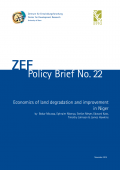
Niger’s natural resource management policies and institutions in colonial and post-independence times have discouraged landowners to plant or protect trees. The consequent land clearing led to severe scarcity of tree products. Firewood collection – mainly done by women – became a full-time task, especially after the prolonged drought period. Niger...
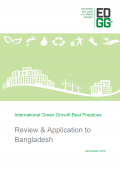
This report seeks to document international best practices in adopting green growth strategies. It explores why some countries decide to pursue a green growth path and how they transition to such a pathway. For many countries, green growth presents an attractive opportunity to achieve poverty reduction, environmental protection, and economic...

Gedaref State was previously known as the food basket of Sudan. Over several decades unsustainable agricultural practices that combined near-monocropping with low nutrient replenishment have led to significant degradation of soils, which are no longer able to sustain farmer livelihoods. This study found that adopting an integrated sustainable land use...

Independence from the former Soviet Union in 1991 presented the republics of Central Asia, Kazakhstan, Kyrgyzstan, Tajikistan, Turkmenistan and Uzbekistan, with severe challenges for land management with ensuing economic, social, and environmental crises. Driven by the historic development of irrigation projects, often unsupportable increases in livestock numbers on rangelands, and...
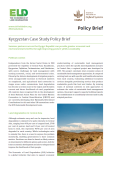
Independence from the former Soviet Union in 1991 presented the republics of Central Asia; Kazakhstan, Kyrgyzstan, Tajikistan, Turkmenistan, and Uzbekistan, with severe challenges for land management with ensuing economic, social, and environmental crises. Driven by the historic development of irrigation projects, often unsupportable increases in livestock numbers on rangelands, and...

Independence from the former Soviet Union in 1991 presented the republics of Central Asia, Kazakhstan, Kyrgyzstan, Tajikistan, Turkmenistan and Uzbekistan, with severe challenges for land management with ensuing economic, social, and environmental crises. Driven by the historic development of irrigation projects, often unsupportable increases in livestock numbers on rangelands, and...
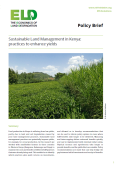
Food production in Kenya is suffering from low yields, partly due to land and soil degradation caused by poor land management practices. Sustainable land management practices can potentially improve yields, for example, for cereal production. In this research we worked with smallholder farmers in three counties in Western Kenya (Bungoma...
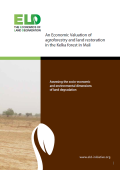
The Kelka forest in the Mopti region of Mali is important for the provision of ecosystem services like carbon sequestration and maintenance of the hydrological cycle. The Kelka forest area occupies more than 300, 000 hectares with 15 villages within and around its boundaries. The forest resources and soil fertility of the forest are in continuous decline...
